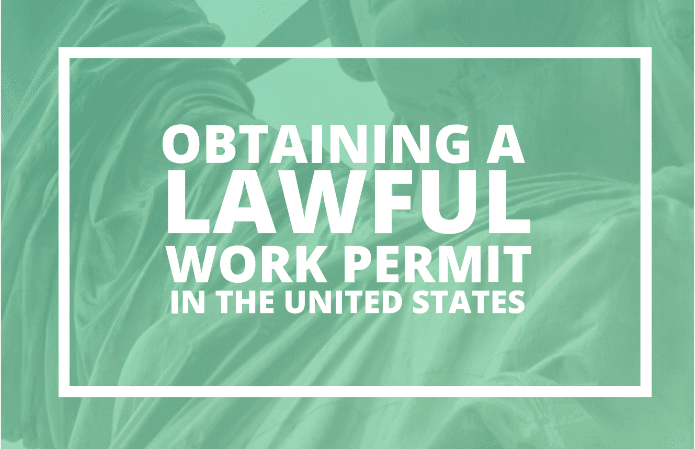
Oakland Deportation Defense Lawyers
Serving Clients Throughout California
The state of Texas has deported more foreign nationals than any other state in America and second place isn’t even close. However, the dishonor for second place does belong to the more liberal-minded state of California. Despite California’s significant immigrant population – it has long been home to more immigrants than any other state – detention and deportation remain a threat to families here just like anywhere else in modern America.
Our Deportation Attorneys in Oakland
After you’ve started a life here in America, being detained and with orders for deportation can be insulting, frightening, and heartbreaking. But immigration attorneys like ourselves believe that you deserve to stay with your family and loved ones in the place you call home. With strong legal representation, it may be possible to challenge your deportation orders and remain in the United States.
Call Landerholm Immigration at (510) 491-0291 to discuss your options with an Oakland deportation lawyer.
What Happens To Our Children If Both Parents Get Deported?
It is not unusual for individuals with no legal immigration status to give birth to U.S. citizen children. In fact, there are about five million children under the age of 18 who have at least one parent with no legal immigration status. As a result, many parents live in fear of deportation these days, simply because there will be no one to care for their children. If both parents are deported, what will happen to their U.S. citizen children, especially if they are detained for a period of time pending deportation proceedings?
The answer to this question is – it depends. Every situation is different, and how families choose to deal with the situation varies widely. Some parents who face deportation will leave their children in the U.S., in care of relatives. Other parents will take their children with them, or leave them with a relative or friend until they return to their home countries and can send for their children. There are some general pieces of advice, however, that apply to everyone facing this incredibly difficult situation.
- First, you should make a plan to put into action in case one or both parents are deported. You also should meet with an experienced immigration lawyer in order to go over your legal options.
- Next, gather important documents for your children, such as birth certificates, social security cards, health insurance cards, medical records, immunization records, passports, and other similar documents, and place them in a safe place where a close relative or friend can access them in case of an emergency.
- Finally, you can execute legal documents designating certain people as guardians of your children in the event that you are deported. There also are documents that you can sign that allow a relative or friend to obtain medical care for your child, if necessary.
What Is A Potential Defense To Deportation?
Some stages of immigration court move fast and one must strictly obey the judge’s orders if they hope to navigate the legal process and win their release. Therefore it is vital to enlist the assistance of legal professionals who understand immigration law, detention, and the deportation and removal process. At Landerholm Immigration, A.P.C., our lawyers will do everything in their legal power to fight for your freedom. Our years of experience have given us unique perspectives on all aspects of immigration law and we may be able to help you build a winning defense.
What Services Can A Lawyer Provide?
At Landerholm Immigration, A.P.C., our team of attorneys and associates can help defend you and your family from deportation and removal. We could try appealing to the decency of ICE from the start to see if they will be lenient in your case. However, the agency is not often cooperative with lawyers for the defense, and we may need to pursue other measures in order to help you.
An immigration attorney may be able to assist you in securing release by working with the immigration judge. Additionally, the attorney could help you file for deportation relief, or help you navigate the process of obtaining legal citizenship. There are numerous waivers and other eligibility requirements to consider during this time. A lawyer with experience in immigration law could be your last, best hope of securing your freedom.

Client Success Stories
We are on a Mission to Win 10,000 Immigration Cases!
At Landerholm Immigration, A.P.C., we are dedicated to helping you achieve your dreams. Our team understands that immigration matters can be very stressful. In fact, many of our employees are immigrants themselves and they have firsthand experience with the U.S. immigration process.
Get in touch with a member of our team today to learn how we can help with your immigration case: (510) 491-0291
-
“Landerholm Immigration has good customer service, are quick and responsive.”- Ulises V.
-
“Thank you for all your help in my immigration case!”- Askin C.
-
“I am extremely grateful for the services offered by Landerholm Immigration. My wife and I were guided through every step in the process.”- Tyson A.
-
“The process to get a Green Card was very challenging and finally I have it. I appreciate the whole team at Landerholm because they are very organized and helped me apply for the Green Card step by step.”- Omar P.
Our Guides
Free Immigration Guides: Downloadable Resources to Support Your Journey
-
 Obtaining a Work Permit
Obtaining a Work Permit -
 Be a Prepared Immigrant for Trump's 2nd Term
Be a Prepared Immigrant for Trump's 2nd Term -
 12 Things Immigrants Should Avoid
12 Things Immigrants Should Avoid -
 Obtain a Lawful Driver's License
Obtain a Lawful Driver's License -
 Win Despite Immigration Fraud Allegation
Win Despite Immigration Fraud Allegation -
 12 Benefits of Hiring Us
12 Benefits of Hiring Us -
 Obtain a Marriage/Family-Based Green Cards
Obtain a Marriage/Family-Based Green Cards






